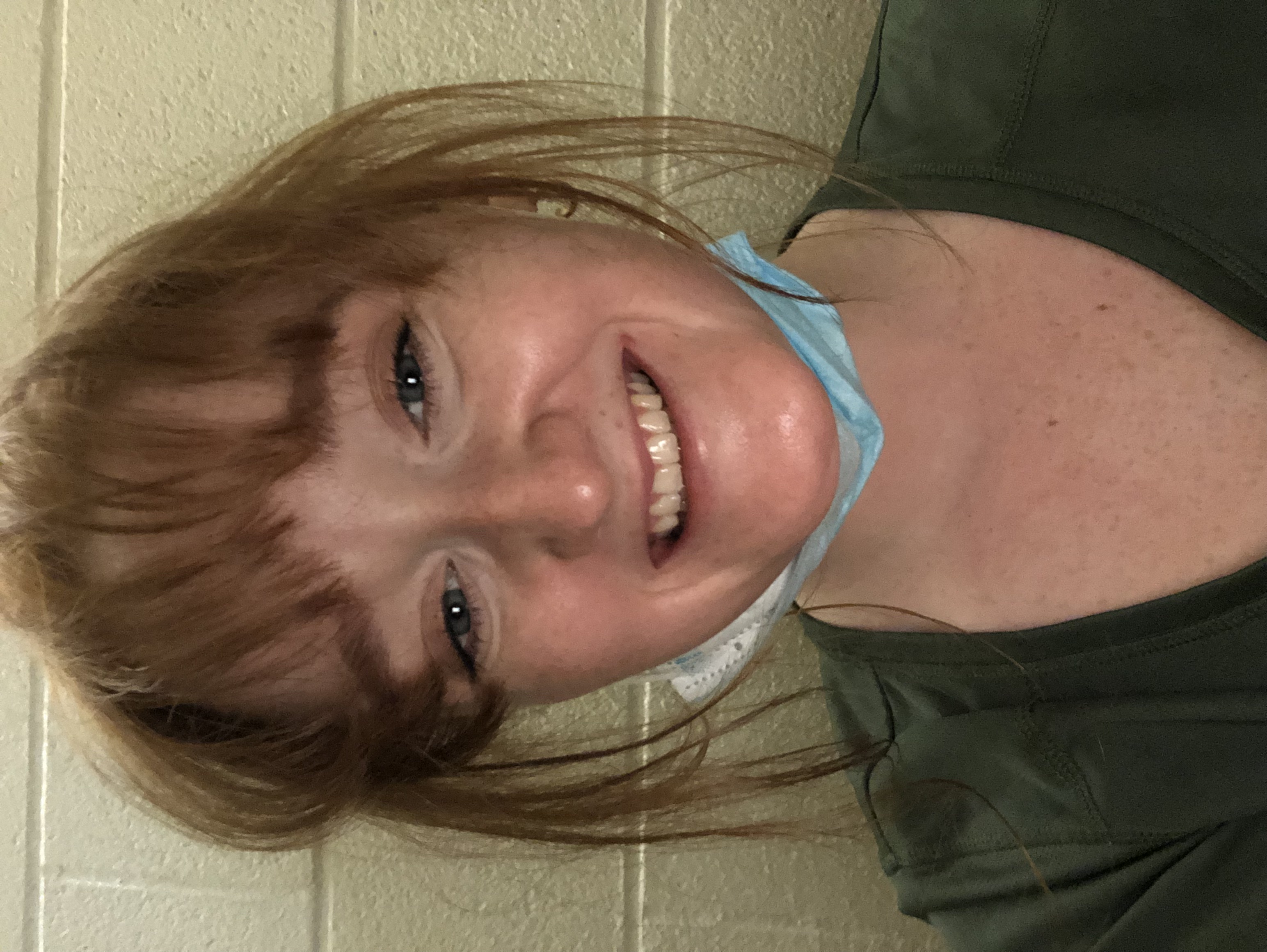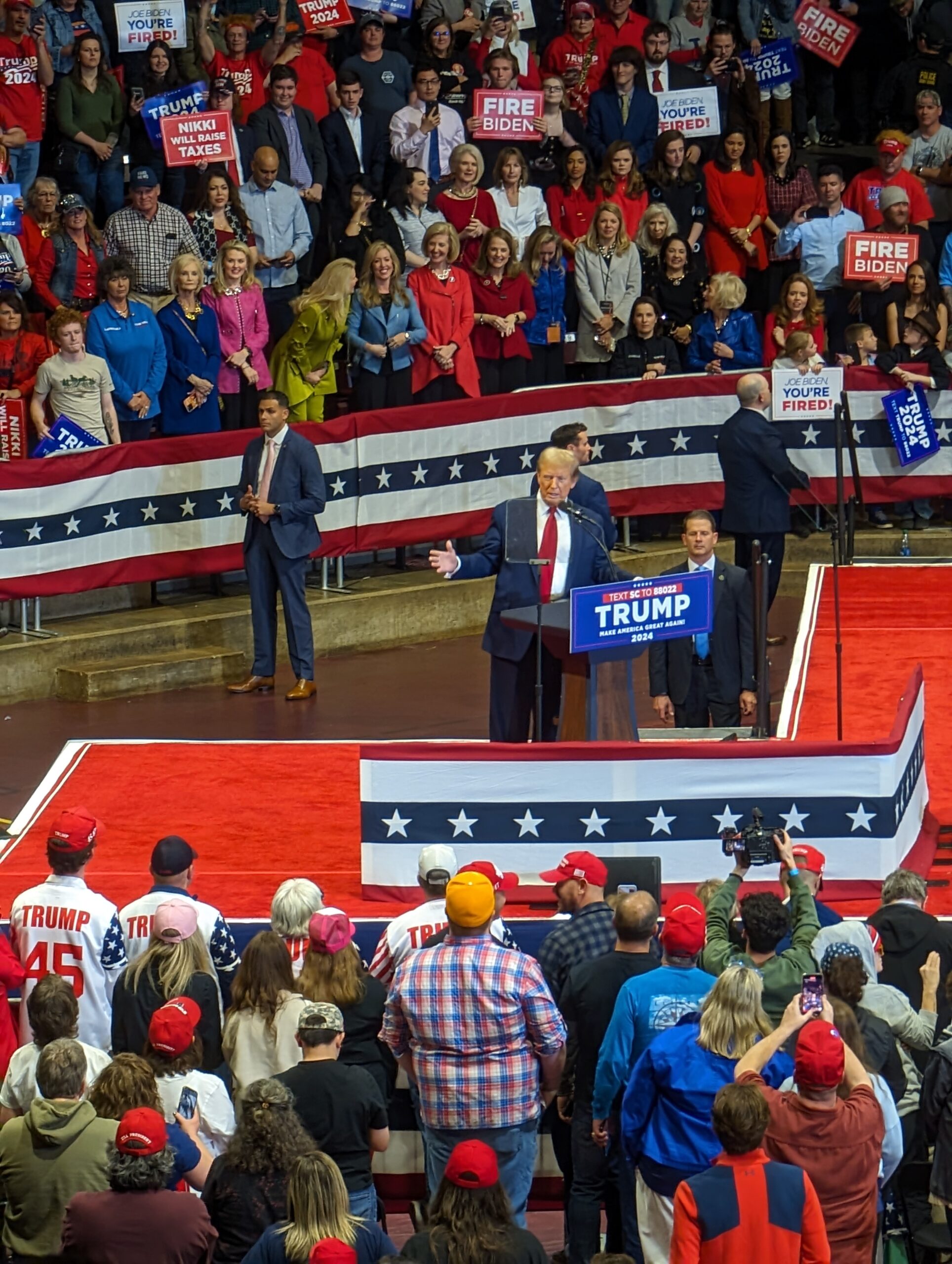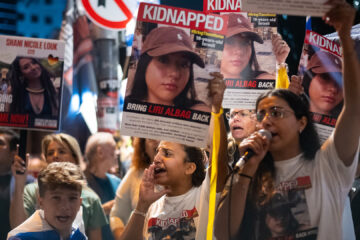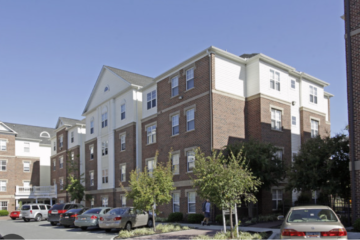*TW: Mention of sexual assault*
The Presidential Search Committee has announced the three finalists for the position of Winthrop University’s 12th president. All of them are men, and upon first glance, it seemed as though each candidate is white.
“Sounds about white,” commented Grace Jones, ‘15, on the university’s Instagram post about the presidential finalists.
During candidate Edward Serna’s presentation at Dina’s Place on Feb. 7, he said that he is Hispanic, a fact many were not aware of until his mention of it.
Looks can be deceiving, and therefore, we should keep an open mind about the next two candidates, Martin Roth and Neal Weaver.
The next two candidates’ professional backgrounds are similar to that of our previous presidents. Both currently serve as presidents of primarily white institutions including the University of Charleston in West Virginia (58% white, 22% unknown, 9% Black, 2% Hispanic, 1% Asian, according to collegesimply.com) and Georgia Southwestern State University (72% white, 23.9% Black, 4.1% other, according to collegefactual.com).
If it comes down to the other two candidates, it appears that (though looks can be deceiving) the next president will blend in with nine of the 11 former presidents, who were all white men — the other two were white women who, combined, served only three years. The other 133 years of Winthrop’s history have been led by white men.
Winthrop’s 12th president will be the face of not only the university but the Rock Hill and York County communities as well.
When people from outside of the community look at us, they will see an inaccurate depiction of who we are. They will not see LGBTQ people. They will not see differently-abled people, and if Serna is not hired, they will not see diverse people.
Instead, they will see a face that is all too similar to those of our presidential past. They will see a university that seems unwilling to depart from its confederate history. They will see a campus still decorated with statues of and buildings named after men whose successes were built on the backs of people of color.
“[The diversity of the finalists] definitely came as a shock to me as well since Winthrop is a university that prides itself on diversity and inclusion,” said Erin Emiroglu, chair of the Council of Student Leaders. “I was not able to be a part of the application process, so I did not know the candidates until the students did. … We just learned today that the first candidate is Hispanic, so he is part of a minority group, and a lot of people assumed that he was just this white man. … I think that even if the candidates are not diverse, as long as they are willing to work towards diversity and inclusion, then there is hope, definitely.”
On Winthrop’s Instagram, a post was made on Feb. 4 in honor of Black History Month. The post featured four women of color who will be remembered as trailblazers in Winthrop’s history. This was the second-most recent post made on the account as of Feb. 7. The most recent post featured the faces of the three presidential finalists.
Seeing this post adjacent to the Black History Month post presents an obvious irony.
Cynthia Plair Roddey, ‘67, one of the women featured in the Black History Month post, said, “I just wondered where the diversity was. I did not see a female. … I know [the university] wants to get the best-qualified person … but they should be inclusive in their nomination of candidates. I would think that at this point in time, that we would be progressing towards equity and that they would include [women] in their recommendations.”
The university employed the help of Myers McRae, a Georgia-based executive search and consulting firm, in the search for presidential candidates.
“With Myers McRae’s help, the presidential search committee was pleased to assemble the most professionally qualified finalist pool for a Winthrop presidency in recent years. All of these finalists mentioned the great potential they see at Winthrop, and we are thrilled to be hosting them,” said Presidential Search Committee Chair Julie Fowler.
The Myers RcRae team assembled a profile that outlines what the 12th president should be like.
In the profile, it was written that at Winthrop, “[u]ndergraduates represent 48 states and 31 countries with diverse students comprising 45% of the student population.”
It was also written that the presidential candidate must have a “demonstrated record of accomplishment and impact in advancing issues related to diversity, equity, and inclusion, encouraging a culture of and acceptance for diverse thought and comfortably participating in and championing open dialogue on matters of importance to include a spectrum of political opinions.”
Whether the university used Myers McRae in order to have an unbiased interview process or to just receive a more experienced opinion, it was an inconsiderate choice in the eyes of the Winthrop community.
“I just want Winthrop to stop with the external president searches in general. [There are] plenty of qualified folks within those walls that [they] just don’t wanna pay,” Kalea Young-Gibson, ‘20, said.
Most members of the Myers McRae team do not fit the profile they provided for applicants. The team is made up of six white men, six white women and one woman of color. The director, R. Kirby Godsey, is the former president of Mercer University, a historically Baptist university in Georgia. His background is not different enough from that of Winthrop’s Presidential Search Committee and Board of Trustees.
In short, it is no surprise that white presidential search members chose three male candidates and that the Winthrop community criticized the choice of finalists for a lack of diversity.
The minds of Winthrop’s diverse faculty, staff and students were barely considered in the search for the person who is supposed to be representative of their interests and diversity. It is both upsetting and insulting.
Eden Cook, a junior theatre major, asked, “When are we going to see the diversity the university promises to commit to? Where is the inclusivity?”
William Stockdale, ‘20, called the university’s choice in finalists “truly disheartening.”
“Pretty disappointed, Winthrop,” said Lexi Meyer, a senior business administration major. “I was really hoping for more diverse candidate options, especially with how Winthrop promotes being diverse on campus and in advertising.”
I love Winthrop. I love Winthrop because it was on this campus that I was exposed to, for the first time ever, people different from me. I am a straight Southern white woman who was accepted as a freshman to attend this diverse university back in 2018. Upon beginning my freshman year, I was a religious and narrow-minded person. I was quickly exposed to students and faculty who were diverse in their backgrounds, abilities, identities and sexual orientations. I now find myself, less than four months until graduation, as a person eager to learn more about human experiences different from my own. I find myself thrilled to be surrounded by people who think and act differently than me. I owe these life-changing experiences to the Winthrop community.
I am disheartened that the chances for future freshmen and transfer students to receive such life-changing experiences are being lessened by the possibility of having yet another white male president.
If Winthrop continues not to prioritize diversity and keep hiring male presidents instead of attempting to satisfy the desires of the faculty, staff and students, the diversity of this institution will soon be diminished.
I once heard Chair of the Board of Trustees Glenn McCall say at a board meeting that Winthrop is a business and that the students are its customers. I hope the 12th president, whoever that will be, does not see us that way.
I hope he sees us as a diverse group of adults who are faring with an unstable academic environment because of the pandemic.
I hope he sees us as students who are hurting from the multiple instances in which our on-campus traumas were ignored for the sake of keeping Winthrop’s name clean.
I hope he sees us as students afraid to walk our campus at night, especially considering the fact that our blue light system has been faulty in the past.
“The most recent WU Students for Change list of demands includes functioning blue lights, which [Patrice Bruneau, assistant vice president for Computing and Information Technology] said was not on his radar until the group started advocating for their repair,” wrote The Johnsonian news editor, Christian Smith, in our Jan. 19, 2022 issue.
“I’m looking at replacing the ones that don’t work anymore, don’t work reliably,” Bruneau was quoted saying in Smith’s story. “A contractor has been on campus, surveyed and is working on a list of what we can replace with what. And so that will include the blue lights. This is definitely in response to the students’ concerns.”
I hope he sees us as students struggling to make it to our classes on time because of this campus’ lack of accessibility.
“Broken elevators. Cracked, uneven ramps,” sophomore Ainsley McCarthy wrote in an Instagram post on Sept. 5, 2021. “Finicky push buttons, outside doors which are adhered to the wall with tape, or sometimes no push button at all … These are just some of the issues that I am forced to reckon with every day.”
I hope he sees us as students who are hesitant to trust our campus police because of Charles Price, a former WUPD officer who is in prison for 52 counts of sex crimes.
I hope he sees us as students who feel unsafe in their own residence halls after a man off the street entered Phelps Hall and sexually assaulted a student on Nov. 16, 2021.
I hope he sees us as students who arm themselves with self-defense tools after one of our own was held at gunpoint and raped next to campus by then 16-year-old Terry Shaimek Tyler, who is now serving 60 years in prison, according to WSOCTV.
I hope he sees us as students struggling to complete our homework in our dorms due to poor WiFi, mold and other infrastructure issues.
I hope he values our student-athletes, both international and American, especially considering the elimination of the tennis team, which caused multiple international student-athletes to leave this university.
“Tennis is a part of who I am, which is why I will be transferring to another Division I school to continue my path,” Angela Georgieva, an international student from South Africa, informed the Board of Trustees in November of 2020.
I hope he takes our Council of Student Leaders seriously.
“Has CSL been taken seriously? I would say yes, 100%. I came in as a freshman when President Mahony was still here, and I know that he had a great connection with the previous CSL presidents, and I think we all know as students that he was very involved with the student body in general,” Emiroglu said. “President Hynd, while working with him, has learned a lot about CSL, and I think he has been very excited with the work that we have done, so I think that he is also appreciative of the work that CSL does.”
I hope he sees us as a community in desperate need of a president who welcomes our protests, Freedom of Information requests, student journalists, and faculty and staff.




